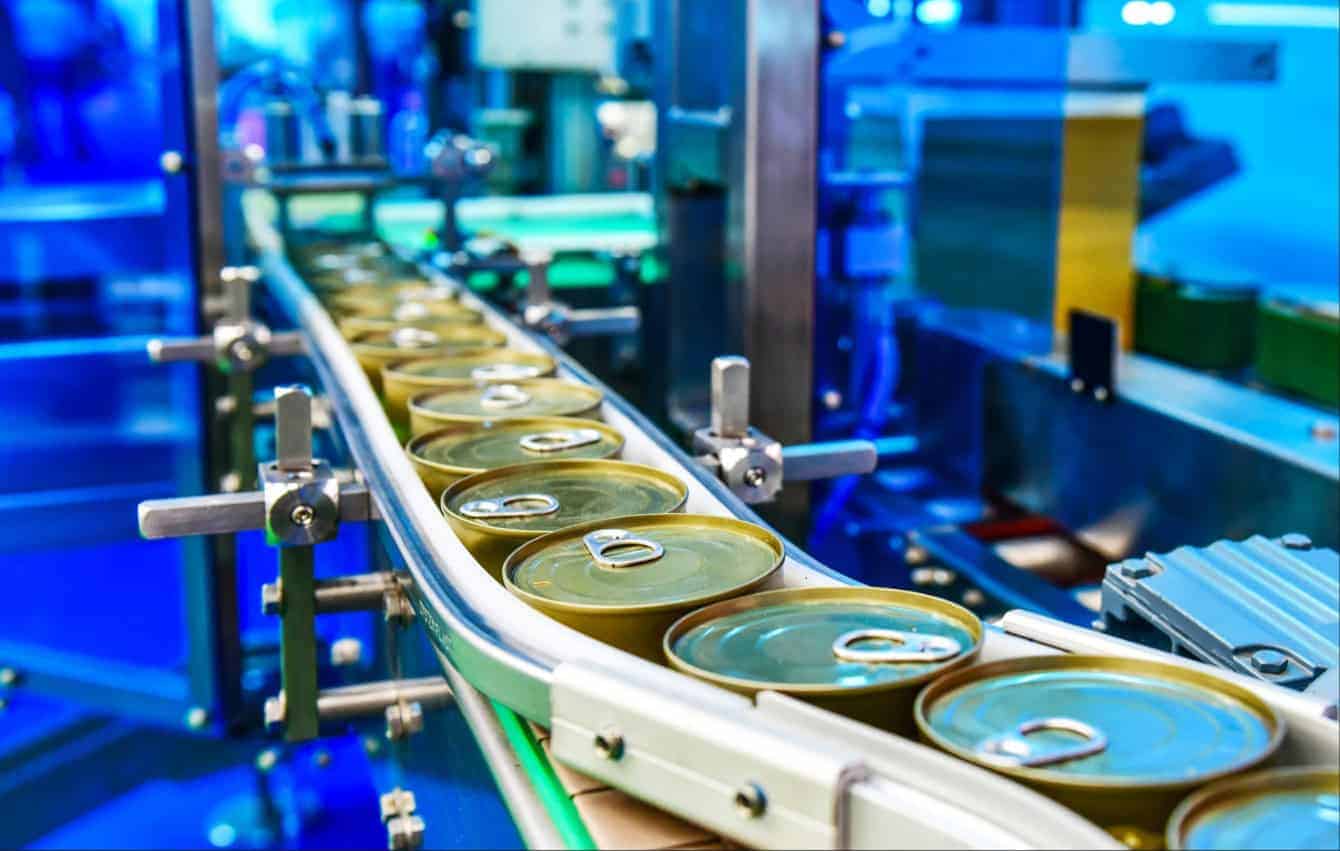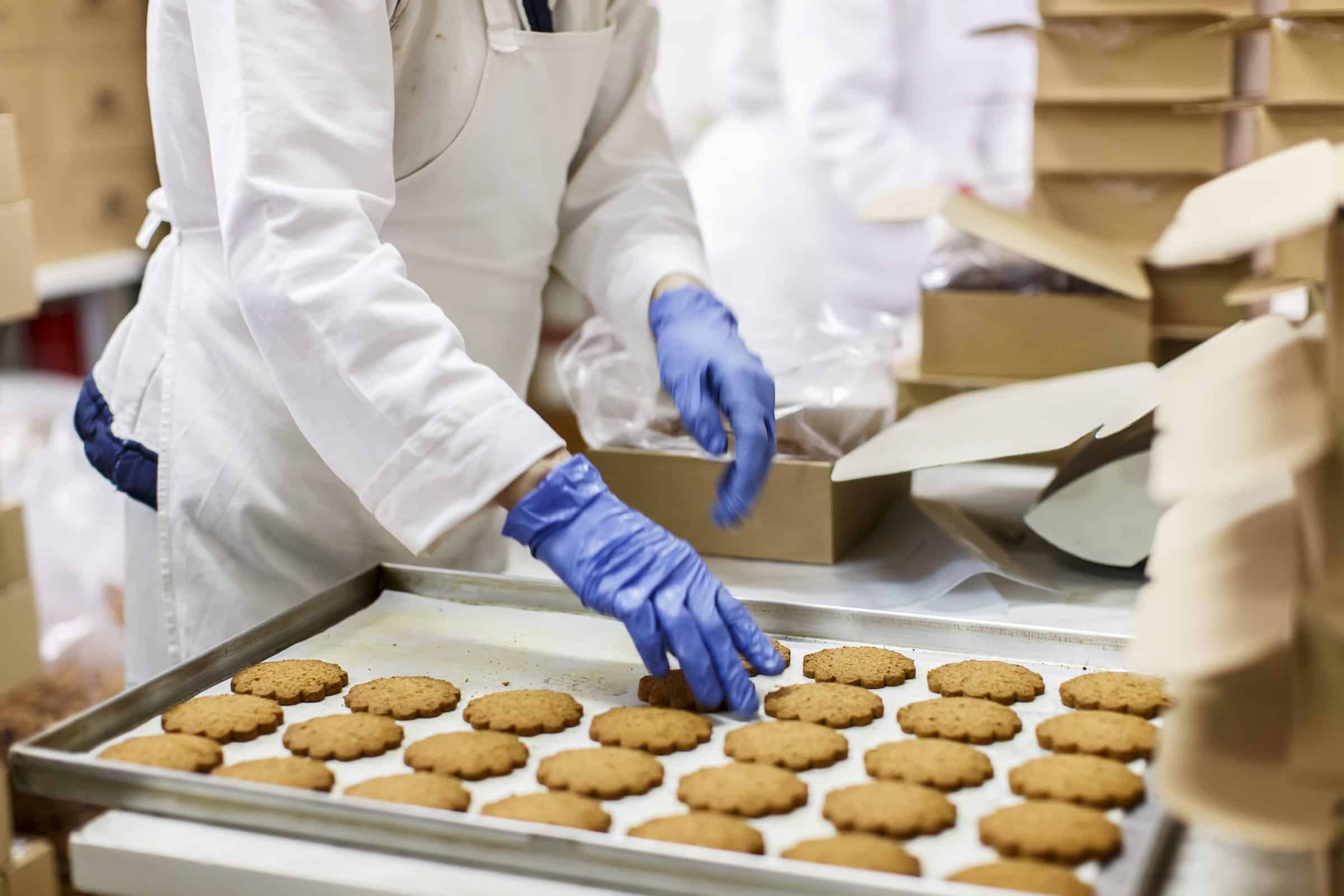We thank the food manufacturing workers who labored tirelessly to increase production and meet the demands of America’s food needs during the COVID-19 pandemic.
Those who work in food manufacturing do a hard, often thankless job. Lineworkers spend long days on their feet. They put a lot of effort and pride into ensuring the foods America loves arrive safely on store shelves and into the kitchens of eager consumers.
The COVID-19 crisis underscored the importance of this often-overlooked industry. Food manufacturing workers had to put their health and safety on the line to ensure that food remained available to the public. In some cases, manufacturers even had to increase their pay to include hazard bonuses. Labor shortages and supply chain issues made it difficult to work, but nevertheless, grocery store shelves were always stocked as food production businesses adapted to our changing needs.
Here are some of the ways in which the industry changed as a result of the pandemic.
The Pandemic “Shift”

The food service industry has always been known for its unparalleled approach to food safety and hygiene. To keep workers safe and healthy, PPE like masks, gloves, hairnets, and other protective equipment has been the norm for a long time. However, during the pandemic, they ramped up those safety measures even more, often while facing labor shortages and unclear guidance from the federal government.
These measurements included a vast increase in the approach to cleaning. Hourly sanitization of work areas with particular attention to touchpoints (like light switches, knobs, and equipment handles) became a regular practice in many food manufacturing plants, as did employee temperature checks and safety adjustments that included staggering shifts to limit the number of workers on the floor at any time.Early in the pandemic, many consumers stocked up on groceries out of fear of potential food shortages. Still, production remained as consistent as possible under the circumstances. Customers were frightened to see empty shelves at the grocery store, but despite the initial “run” on certain products, workers were always able to restock those shelves.
However, customers’ grocery selections, which primarily consisted of pantry staples and meat, put a strain on the industry. Production of specialty items, pre-prepared foods, and perishable goods needed to slow down to focus on the essentials. While the trend toward packaged foods has been mostly good for food manufacturers, it has required many of them to adjust their approach.
The Industry Today

Plant-Based Proteins
Food manufacturing companies were forced to adopt a high-flexibility model after canceling many of their planned product launches and quickly figuring out new products they could market with the supply chain limitations. This process is mainly responsible for why we see many plant-based foods and meat alternative products on the shelves today.
Against the backdrop of a health and safety-focused population, and in tandem with more and more people raising environmental and ethical concerns about the commercial meat industry, meat alternative products are becoming more popular than ever.
At-Home Cooking
COVID-19 has drastically changed the way people buy and eat food. Many consumers prefer eating at home and often opt for to-go or pickup ordering over dining out. There has been a new surge in interest in learning to cook, with at-home chefs regularly whipping up their favorite dishes and showing off their recipes and impressive dinner photos on social media.
With the increase in at-home cooking, the demand for staples, snack foods, and easy-to-cook options has also increased. Beans, rice, and other shelf-stable foods are popular. Consumers also favor frozen and canned fruits and vegetables, which are easy to ship and store.
New Technologies
Additionally, to continue with established production rates despite the need for limited labor, many food manufacturing companies turned to technology companies for help implementing innovative and automated processes into their production. Automation has helped keep consumer costs lower than they might otherwise have been. It has also allowed companies to increase donations to the nation’s food banks—a resource that citizens utilized more than ever during the pandemic.
While there’s no doubt that new challenges will always lie ahead for the industry, it’s essential to recognize the tireless efforts of the food and beverage manufacturers, distributors, and other workers who keep our food supply running.
The Importance of Hot Water in Food Manufacturing Labeling, Packaging, and Shipping
We often forget about the critical role packaging plays in food manufacturing. Bottles, labels, lids, boxes, and plastic containers are all part of food and beverage manufacturing. Mechanical equipment, refrigeration, and storage are part of the system that keeps lines moving.
Each tool and piece of equipment plays a vital role in the food manufacturing process, which is why it’s crucial that those other manufacturers and equipment servicers keep going in times of crisis. If one piece of equipment goes down, the supply chain experiences a disruption. Bottles that can’t get labeled or a shortage of lids could result in wasted products and materials.
However, the most important part of labeling and packaging is sterilization. If packaging isn’t adequately sterilized before sealing, bacteria will quickly grow and cause foodborne illnesses.
Sterilization and sanitizing equipment rely on hot water to keep consumers safe.
Food manufacturing equipment must be sanitized with water that is precisely 180˚F, which requires that specialty commercial water heating equipment (like booster heaters) be installed correctly to prevent employees from burning themselves.
Consumer and Employee Safety

Food and beverage manufacturing workers do physically demanding and often dangerous jobs. They frequently work alongside heavy mechanical equipment, deal with large quantities of manufacturing byproducts, chemical cleaning agents, and other hazardous substances, and handle perishable goods and products that must be safe for consumption.
Needless to say, safety, cleanliness, hygiene, and sanitation are of the utmost importance when it comes to consumer safety, but they’re just as essential to ensure worker safety! Access to hot water for things like handwashing and sanitation stations in case of chemical spills helps maintain safe working conditions, and ensure that production can continue without interruption.
Reliable Water Services is Here for You
At Reliable Water Services, we offer water heater rental plans and service options designed to meet the hot water needs of the food manufacturing industry. Our trained water heater technicians are on call 24/7 to ensure your facility never experiences downtime due to water heater failure.
It is impossible to make food safely without a working water heater or booster heater. If your hot water equipment breaks down or needs repair, you could face days of lost productivity and money. That’s why renting your water heating equipment from Reliable Water Services is an excellent option for essential businesses that rely on consistent and immediate access to hot water.
Food Manufacturing Water Heater Coverage Options
No matter your need, we have a plan that will work with your business and your budget. Some options for water heater coverage plans include
- Premier Rental Plan
Our turn-key solution for all your commercial water heater needs! The plan includes equipment, installation, 24/7 service, and replacement when equipment fails.
- Standard Rental Plan
Equipment + 24/7 service + replacement when equipment fails.
- 24/7 Service Plan
Around-the-clock service coverage on your own commercial water heater.
- Lease-to-Own Agreement
As always, should you need service, contact us 24/7 at 1-800-356-1444.